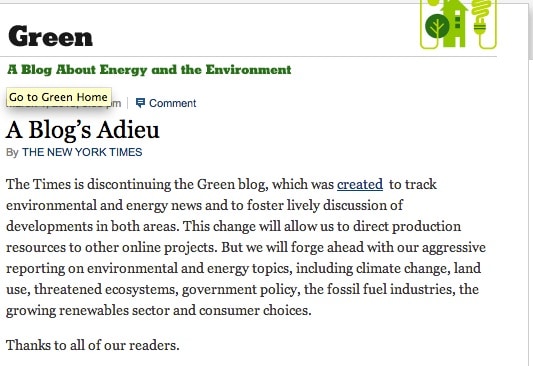Only a few weeks after The New York Times announced it would be dismantling its environment reporting desk, a visit today to the popular New York Times Green blog finds that it has been shut down as well.
In a post titled “A Blog’s Adieu,” they write:
“The Times is discontinuing the Green blog, which was created to track environmental and energy news and to foster lively discussion of developments in both areas. This change will allow us to direct production resources to other online projects. But we will forge ahead with our aggressive reporting on environmental and energy topics, including climate change, land use, threatened ecosystems, government policy, the fossil fuel industries, the growing renewables sector and consumer choices.”
I’ll post reactions to this bad news as I receive them. Pop any that you see into the comments below, please.
Subscribe to our newsletter
Stay up to date with DeSmog news and alerts







